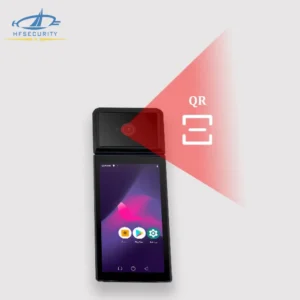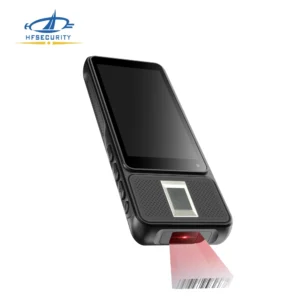Identify Your Business Needs for a QR Code Scanner
Before investing in a QR code scanner, clearly define your business needs. Different industries require different scanning capabilities.
1. Determine the Purpose of the Scanner
Consider the primary use case:
Inventory management: Frequent scanning of products, often in warehouses or stockrooms.
Point-of-sale (POS): Quick scanning at checkout counters for retail or hospitality.
Marketing campaigns: Scanning QR codes from print materials or digital ads.
Attendance or access control: Employee or visitor identification using QR codes.
2. Decide on Scanner Type
Choose a scanner type based on mobility and use-case:
Handheld QR scanners: Flexible for on-the-go scanning, ideal for retail or inventory.
Fixed QR scanners: Mounted scanners suitable for checkout counters or production lines.
Mobile device apps: Smartphone-based scanners for small businesses or marketing campaigns.
System compatibility is a critical factor for smooth operations. A scanner that does not integrate with your existing systems can cause delays and frustration.
1. Hardware and Software Integration
Make sure the scanner works seamlessly with your current setup:
POS systems: Retail scanners should integrate with checkout systems for faster processing.
Inventory software: Integration ensures accurate stock tracking and reporting.
CRM systems: Scanners that sync with customer databases enhance marketing and loyalty programs.
2. Operating System Support
Check whether the scanner supports multiple platforms:
Android, iOS, Windows, or Linux.
SDK or API availability for custom software integration.
Evaluate Scanning Performance
Performance directly impacts efficiency and productivity. A slow or inaccurate scanner can disrupt workflows.
1. Speed of Scanning
Choose a scanner that can read QR codes quickly, especially in high-volume environments. Multi-directional scanning can save time by reading codes without precise alignment.
2. Accuracy and Reliability
High-resolution scanners can read damaged, smudged, or poorly printed codes.
Advanced scanners support multiple code types, including QR codes, barcodes, and data matrix codes.
3. Distance and Angle Capabilities
Some scanners can read QR codes from a distance or at awkward angles, useful in warehouses or retail settings.
Consider Security Features
1. Data Encryption
Scanners with encryption support protect data during transmission and prevent unauthorized access.
2. Access Control
Some scanners allow authentication or user access management, ensuring that only authorized personnel can scan or view data.
3. Compliance and Regulations
Check whether the scanner complies with industry regulations (e.g., GDPR) to protect customer privacy.
Assess Durability and Design
1. Industrial and Rugged Scanners
For warehouses, factories, or outdoor use, consider scanners with:
Shock resistance
Dust and water protection (IP-rated)
Long-lasting battery life for handheld devices
2. Sleek and Compact Designs
For retail counters or office environments, compact scanners are more convenient and aesthetically pleasing.
Evaluate Cost and Return on Investment (ROI)
Price is an important consideration, but the cheapest option may not provide long-term value. When choosing a QR code scanner for your business, it’s essential to consider both upfront costs and the potential productivity and efficiency gains.
High-quality scanners may have a higher initial investment, but they often deliver faster scanning speed, reduce errors, and minimize downtime. This translates into long-term cost savings and improved operational efficiency. For example, a reliable QR code scanner can accelerate checkout processes, streamline inventory management, and reduce manual data entry, ultimately increasing overall productivity.
Additionally, investing in a scanner with advanced security features can prevent costly data breaches, protecting both your business and your customers. By balancing upfront costs with long-term benefits, you ensure that your investment in a QR code scanner delivers maximum ROI.
Conclusión
Elegir lo correcto QR code scanner for your business involves careful consideration of your operational needs, system compatibility, scanning performance, security, durability, cost, and additional features. By evaluating these factors, you can select a scanner that enhances efficiency, protects sensitive data, and improves customer or employee experience.
Investing in a reliable QR code scanner today will streamline your operations, reduce errors, and provide long-term benefits for your business.
Contáctenos
We would love to speak with you.
Feel free to reach out using the below details.



